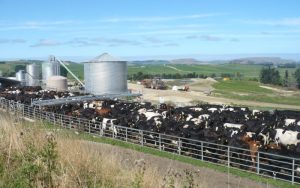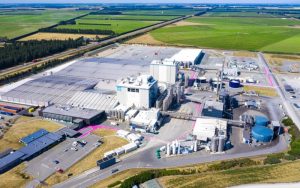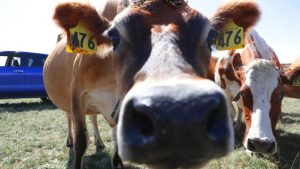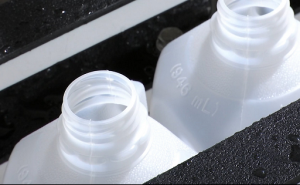
Increasing protectionism, export market red tape, a loss of social licence and an increase in farm subsidies overseas mean the primary industry faces trade challenges not seen since 1995, says Ministry of Foreign Affairs deputy secretary, trade and economic Vangelis Vitalis.
Speaking at the Side South Island dairy event, Vitalis said primary industry trade, but especially dairy, had “golden weather” from 1995 until about 2017.
But the trade conditions that created that period had slowly deteriorated, he said.
After the World Trade Organisation (WTO) was established in 1995 any of its 164 member countries could take another member to a court in Geneva if they believed trade rules were breached, he said.
“Rules provided the industry with transparency and improved market access. When New Zealand felt the European Union cheated us on butter access we took them to court, won the case, and the EU was obliged to comply and trade continued to flow,” Vitalis said.
New Zealand used this court to secure access into large markets numerous times, he said.
The rules were expanded and in 2015 the rights of other countries to subsidise their agriculture exports were stopped, he said.
“For the dairy industry, this was worth hundreds of millions of dollars. Competitors could not have US or EU taxpayer money support export of [their ] dairy products. We levelled the playing field,” Vitalis said.
During that period protectionism and tariffs also declined and subsidies that the EU and US paid to farmers reduced, he said.
New Zealanders in general supported trade in this period, he said.
Even controversial trade agreements were supported by both National and Labour, he said.
“That golden weather is over, since 2017 things changed,” Vitalis said.
WTO trade agreements and treaties were enforced by judges who could hear a case, make a determination and force compliance, he said. But there were currently no judges to hear cases in Geneva because the US refused to reappoint them, he said.
“There is no way we could get big economies to comply if they lost the case against us. This is a world that we have forgotten about, it’s the world that existed before 1995,” he said.
Vitalis said there was a “sneaky creeping protectionism” and a country might not increase a tariff directly but would add red tape to trade.
“The social licence that you take for granted here is extremely fragile, and we forget how fragile it really is.”
Vitalis said when the CPTPP trade deals were negotiated in 2018 bipartisanship on trade was broken.
“For the first time in New Zealand’s history, the two major political parties did not support a trade agreement. National voted for it, Labour voted against it. Arguably our most important trade deal ever [but] more than 20,000 New Zealanders marched down the streets of Auckland against a trade agreement,” he said.
Farm subsidies also increased. Five years ago, US subsidies to cotton farmers were US$40,000 per year, it now was US$100,000, “simply to farm”, he said.
“Those farmers don’t have to worry what markets do because they’ve got this additional buffer,” he said.
“If you’re in any doubt about the way in which the world has changed, you only need to look at the way in which China has dealt with Australia recently, when it believed that Australia had misspoken on the origins of Covid. China retaliated by cutting off wine imports from Australia, barley imports, rock lobster imports, and even coal. Be under no illusions, that kind of behaviour would have been unthinkable ten years ago,” he said.

























